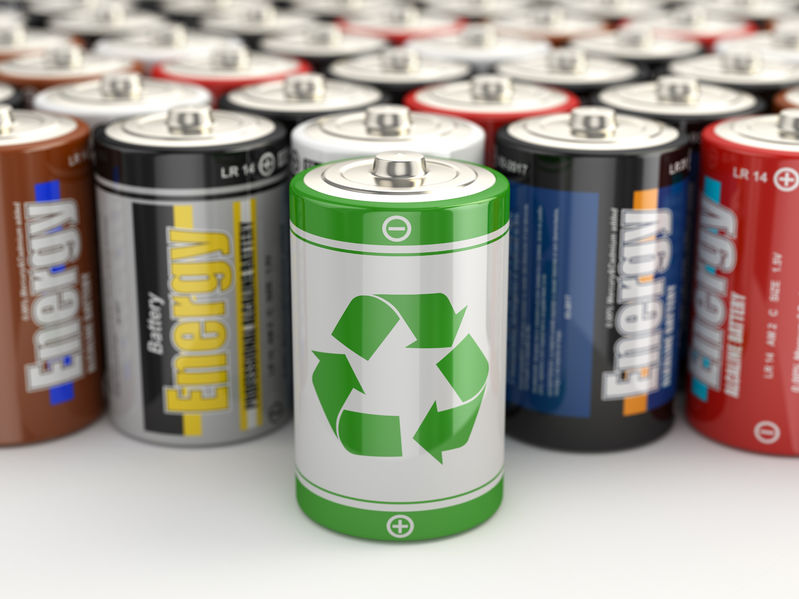Reduce, reuse, recycle – it’s a mantra we’ve known for decades. While Americans understand the benefits of recycling bottles, cans and paper, they aren’t as savvy when it comes to recycling electronics. Between cellphones, tablets, computers and other consumer electronic devices, the average U.S. house has 24 electronic devices – making for a lot of e-waste when that technology becomes dated.
While it may be tempting to put electronic devices and batteries in the trash, it’s critical to understand how to properly dispose of and recycle electronics because each contains contaminants that are harmful to the environment. Here are three big e-waste offenders – cellphones, batteries and computers – and how each can be properly recycled.
Cell phones and mobile devices
You probably have a few sitting in a drawer at your house – cellphones you no longer use but aren’t really sure what to do with. According to Bamboo Mobile, it is expected that there will be roughly 396 million idle or inactive mobile devices in the U.S. by the end of 2014, and of those, only about 80 million will be recycled.
Recycling small electronic devices is easier than ever, and you might even get some money in the process. Just find the nearest ecoATM at a mall or retailer nearby. The kiosks pay you for recycling phones, MP3 players and tablets that are broken or no longer being used. Just place your device in the kiosk and the machine examines it and determines a bid. If you agree to sell it, you get cash immediately. Approximately 75 percent of ecoATM devices purchased find a second life – old or broken phones are responsibly recycled. Visit www.ecoatm.com for more information.
If you don’t have an ecoATM near you, most cellphone providers offer recycling programs within stores. While you won’t earn cash, you’ll still have the opportunity to properly recycle your mobile devices and keep toxic materials out of the waste stream. Keep in mind, for every million cellphones recycled, 35 thousand pounds of copper, 772 pounds of silver, 75 pounds of gold and 33 pounds of palladium can be recovered, according to the U.S. Environmental Protection Agency (EPA).
Batteries
From your electric toothbrush to your TV remote or your children’s animated toys – each day your family uses a lot of batteries. In fact, every year Americans throw out almost 180,000 tons of batteries, according to Earth911, and the majority of these are the single-use type (not rechargeable).
Dry-cell batteries are used in most consumer electronics, and these include alkaline and carbon zinc batteries (including some D, C, AA, AAA and 9-volt) and lithium batteries (including some 9-volt, C, AA and rechargeables). Another type to be aware of are wet-cell batteries that are found in cars, boats and motorcycles. Both dry and wet-cell batteries must be properly recycled.
Recycling all types of batteries help to prevent pollution and reuse valuable metals. Start by checking with your local government or recycling center to learn how to properly dispose of batteries. Automotive stores will often collect and recycle wet-cell batteries. For dry-cell batteries, many municipalities offer boxes in city halls, libraries and community centers where batteries can be placed for recycling. Additionally, consumer electronics stores often have recycling kiosks available to consumers.
Computers and laptops
Computers are part of most people’s daily lives, but when it comes time to upgrade, don’t put your legacy electronics in the trash. Recycling one million laptops saves the energy equivalent to the electricity used by more than 3,500 U.S. homes in a year, according to the EPA.
For old laptops and computers, research donation possibilities in your area. While the technology might be dated for your purposes, it could still be put to good use at a local school, library or retirement center. If there isn’t a place where your computer can find a second life, recycle it through a reputable organization.
Start by researching your computer manufacturer’s recycling programs. From simple recycling drop-off programs to mail-in recycling options, most manufacturers make it easy to reduce e-waste. In addition, most counties offer waste drop-off sites where you can bring your computer – as well as any other electronics – to be properly disposed of and recycled. Call your city or county to learn about available options.

